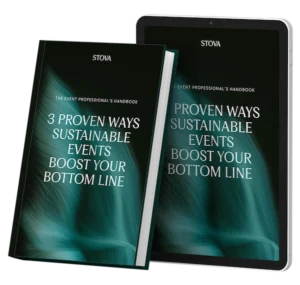What Planners Need to Include in a Pre-Event Communication Plan
August 4, 2021
The word of the day is preparation. If the past year has taught us anything, the power of preparation is one lesson that should not be overlooked. Clear, effective, and comprehensive pre-event communication is more important than ever, especially now in the midst of evolving situations. Whether your event is in-person, hybrid or virtual, a successful pre-event communication plan not only helps everyone involved prepare and set expectations, but it also creates a sense of safety and security for the best experience possible.
Let’s take a look at some pre-event communication best practices. Your strategy should provide attendees, vendors, sponsors and stakeholders with ample information. Lingering questions could become barriers to participation or cause confusion before the event even begins!
Communication Before the Event is Key
Once event details are decided, the ball is rolling. Effective communication must begin early and often. There are critical pre-event details that should be conveyed to and easily accessed by all those who need to know. Your pre-event communication should address the following:
The 5 W’s
A person should be able to visualize their experience beforehand (a vision you, of course, will aim to exceed). By answering the who, what, where, when, and why you bring the attendee’s imagination to life. They can envision what they will do, where there will be, who will be with them, and why the experience is valuable. Use a landing page, social media pages, an event website, invitations, etc. to communicate this basic information and motivate potential attendees.
Pre-Event Registration Info
This may seem obvious, but you know what they say about making assumptions. Make sure your audience knows how to sign up or register. If registration requires payment (or a donation) make sure those details are clearly communicated. Leverage modern event technology such as Stova’s event registration software to make this process seamless.
Tech Requirements
With all of the changes in the event landscape (and the world), attendees need to know what technology they can expect to use for an optimal experience. Will the event rely on an internet connection, personal or work computer, smart phone, downloaded material or new apps? Also be sure to provide access and/or login credentials to exhibits, sessions, chatrooms, or AI applications for engagement.
Safety & Security Precautions
Before the event begins, everyone should be aware of the required safety precautions. Depending on the type of event, this may include information about masks, social distancing, cleanliness and sanitation, contact-less options, virtual alternatives, and more. Be upfront and transparent about both physical and cyber security measures, privacy policies, and access considerations.
Names of Presenters and Event Highlights
Now is the time to name drop! Get people excited about special guests, presentations, features, and headline exhibits. This not only provides essential event information but can also tap into new or larger audiences.
Event Timeline
Attendees should know when and where presentations and activities are taking place so that they can plan accordingly. Curate the experience by offering personalized agendas to capitalize on event engagement. In case anyone misses something, remind attendees how they can access recordings of sessions. Don’t forget, if this is a national or international event, you may need to confirm what time zone will be used as the standard.
Food and Drink Considerations
Have you ever been to an event expecting to eat but there was no food? Yeah, that stinks! If there will be food and drink available at the event, this is an important detail that needs to be conveyed to your attendees. Also, provide information about payment if applicable. For example, some events provide tickets for meals and beverages. Let attendees know if the venue has rules about outside food and drink.
Use Pre-Event Communication Tools
Thankfully, technology can make pre-event communication an easy, reliable process. One strategy that is worth recommending is to use an on-trend mobile event app. This versatile tool that can serve as an incredibly effective means of communication for everyone involved with your event. You’ll have the tools you need to succeed: a social feed for communication, streamlined registration and check-in, unique branding opportunities for sponsors, and so much more! Beyond pre-event communications, this powerful app empowers attendee matchmaking for the best networking experience, gamification tools, audience response systems, on-demand content libraries and more.
Final Thoughts
Be prepared! Never underestimate the volume of questions event participants may have and the frequency with which you need to provide details (even if you sound like a broken record!). Effective pre-event communication is one of the most important aspects of pulling off a superb in-person, virtual, or hybrid event. It sets expectations for the event and alleviates any nerves, fears, confusions or barriers that can come from unanswered questions or uncertainty. Empathize with that journey. In a world full of unknowns, clearly communicating essential information provides much-needed awareness and security.
You don’t have to do it alone. Level up your next event with customizable solutions that check the boxes of event best practices. We’re here to help!
Whether your event is virtual, hybrid, or in-person, enhance your attendee’s journey with an event ecosystem built for your audience. Ready to walk through Stova's event technology solutions? Schedule some time with us today.

